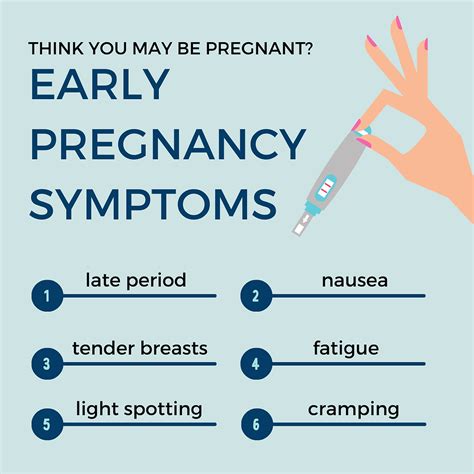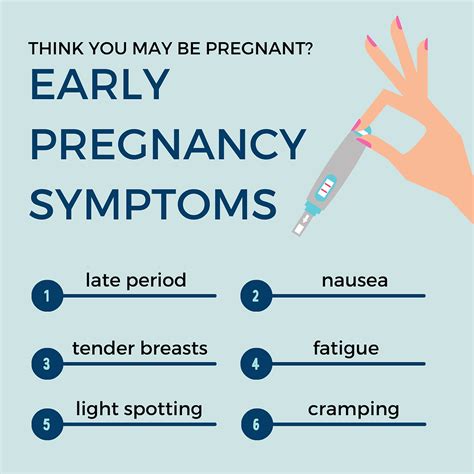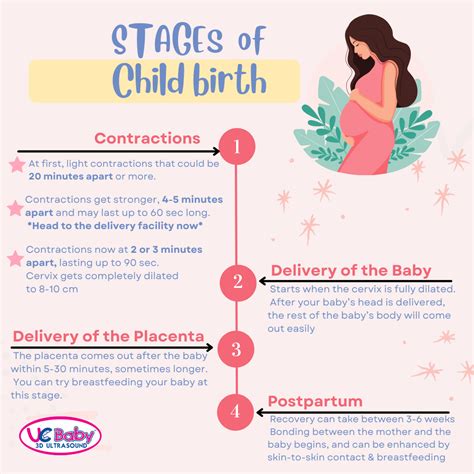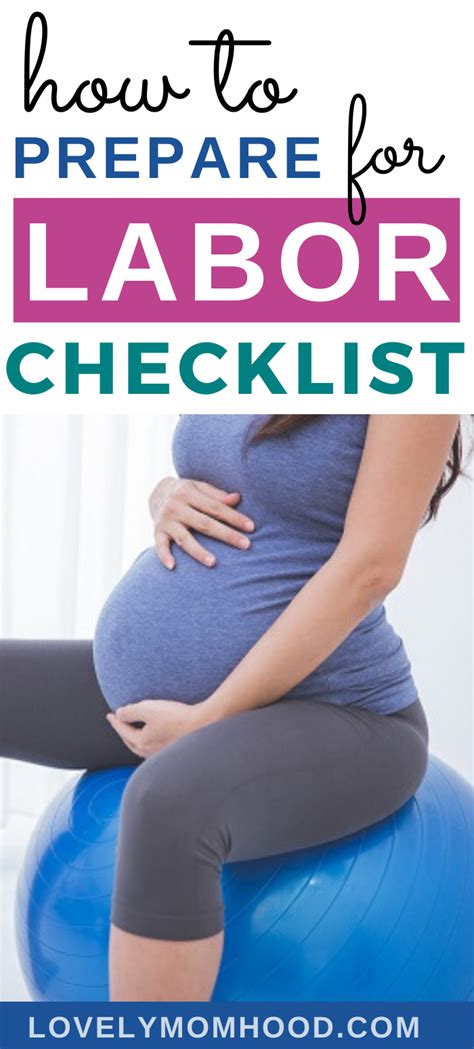Intro
The anticipation and excitement of expecting a child can be overwhelming, and as the due date approaches, parents-to-be often find themselves wondering when labor will start. Childbirth is a natural process, and the human body provides several signs that indicate it's time to prepare for the arrival of the baby. Understanding these signs can help expectant mothers and their families feel more prepared and in control.
As the body prepares for childbirth, it undergoes a series of physical changes that can be both fascinating and intimidating. From the early stages of pregnancy to the final days before delivery, the body sends out signals that labor is near. These signs can vary from woman to woman, but they often include a combination of physical and emotional changes. By recognizing these signs, expectant mothers can better understand what's happening in their bodies and get ready for the big day.
The journey to childbirth is unique for each woman, and while some may experience a smooth and straightforward pregnancy, others may face challenges and complications. However, by being aware of the common signs of childbirth, women can take an active role in their care and make informed decisions about their health and well-being. Whether it's a first pregnancy or a subsequent one, understanding the signs of childbirth can help women feel more confident and prepared for the arrival of their baby.
Early Signs Of Childbirth

The early signs of childbirth can begin weeks or even months before the actual delivery date. These signs can be subtle, but they often include a range of physical and emotional changes. Some common early signs of childbirth include:
- Lightening: This is the feeling of the baby dropping down into the pelvis, which can cause a sensation of pressure and discomfort in the lower back and hips.
- Braxton Hicks contractions: These are mild, practice contractions that help the uterus prepare for labor. They can feel like a tightening or hardening of the uterus, but they're usually painless.
- Back pain: As the baby moves down into the pelvis, it can put pressure on the back and hips, leading to aching and discomfort.
- Frequent urination: As the baby presses down on the bladder, women may find themselves needing to urinate more frequently.
- Mood swings: Hormonal changes can cause mood swings, anxiety, and irritability in the days and weeks leading up to childbirth.
Physical Changes
These physical changes can be both fascinating and uncomfortable. As the body prepares for childbirth, it undergoes a range of transformations that can affect daily life. Some common physical changes include:- Weight gain: As the baby grows, women may experience weight gain, particularly in the belly and breasts.
- Breast tenderness: Hormonal changes can cause breast tenderness and swelling, which can be uncomfortable but is usually temporary.
- Fatigue: The physical demands of pregnancy can leave women feeling tired and exhausted, particularly in the later stages.
- Stretch marks: As the skin stretches to accommodate the growing baby, women may develop stretch marks on their belly, breasts, and thighs.
Later Signs Of Childbirth

As the due date approaches, the signs of childbirth become more pronounced and intense. Some common later signs of childbirth include:
- Contractions: Regular, intense contractions that help move the baby down the birth canal.
- Back labor: Pain and discomfort in the lower back, which can be a sign that the baby is moving down into the pelvis.
- Bloody show: A small amount of blood or mucus that's released from the cervix as it begins to dilate.
- Loss of the mucus plug: A thick, jelly-like plug that blocks the cervix during pregnancy, which can be released as labor approaches.
- Nausea and vomiting: Some women may experience nausea and vomiting as labor begins, which can be a sign that the body is preparing for delivery.
Emotional Changes
The emotional changes that occur during childbirth can be just as intense as the physical ones. As the due date approaches, women may experience a range of emotions, from excitement and anticipation to fear and anxiety. Some common emotional changes include:- Anxiety: Fear of the unknown, fear of pain, or fear of being a new parent can cause anxiety and stress.
- Excitement: The anticipation of meeting the baby and starting a new chapter in life can be exhilarating and exciting.
- Irritability: Hormonal changes and physical discomfort can cause irritability and mood swings.
- Nesting instinct: A strong desire to prepare the home and nursery for the baby's arrival, which can be a sign that labor is near.
Stages Of Childbirth

Childbirth is a complex and multifaceted process that involves several stages. Understanding these stages can help women and their families feel more prepared and in control. The stages of childbirth include:
- Early labor: This is the initial stage of labor, during which the cervix begins to dilate and contractions become more frequent and intense.
- Active labor: This stage is characterized by stronger, more frequent contractions, and the cervix dilates more rapidly.
- Transition: This is the final stage of labor, during which the cervix is fully dilated and the baby is ready to be born.
- Pushing: This is the stage during which the mother pushes the baby out of the birth canal.
- Delivery: This is the final stage, during which the baby is born and the placenta is delivered.
Support During Childbirth
Having a support system during childbirth can make a huge difference in the experience. This can include:- Partner support: Having a partner or loved one present during childbirth can provide emotional support and help with pain management.
- Doula support: A doula is a trained professional who provides emotional and physical support during childbirth.
- Medical support: Medical professionals, such as obstetricians and midwives, play a crucial role in ensuring a safe and healthy delivery.
Preparing For Childbirth

Preparing for childbirth can help women and their families feel more confident and in control. Some ways to prepare include:
- Taking childbirth classes: These classes can provide education and support, helping women understand the process of childbirth and what to expect.
- Creating a birth plan: A birth plan outlines a woman's preferences for childbirth, including pain management, labor positioning, and newborn care.
- Practicing relaxation techniques: Techniques such as deep breathing, meditation, and yoga can help women manage pain and anxiety during childbirth.
- Building a support network: Having a support network of family, friends, and medical professionals can provide emotional and practical support during childbirth.
Postpartum Care
The postpartum period is a critical time for women and their families. Some ways to prioritize postpartum care include:- Rest and recovery: Allowing the body time to heal and recover from childbirth is essential.
- Emotional support: Having a support system in place can help women manage emotional changes and adjust to new motherhood.
- Newborn care: Learning about newborn care, including feeding, bathing, and soothing, can help women feel more confident and prepared.
- Medical follow-up: Following up with medical professionals after childbirth can help ensure a smooth recovery and address any concerns or complications.
Conclusion And Next Steps

In conclusion, understanding the signs of childbirth can help women and their families feel more prepared and in control. By recognizing the physical and emotional changes that occur during pregnancy and childbirth, women can take an active role in their care and make informed decisions about their health and well-being. Whether it's a first pregnancy or a subsequent one, prioritizing education, support, and self-care can make a huge difference in the childbirth experience.
We invite you to share your thoughts and experiences with us. Have you or someone you know experienced childbirth? What were some of the signs and symptoms you encountered? How did you prepare for childbirth, and what support systems did you have in place? Share your story with us, and let's continue the conversation about childbirth and parenthood.
What are the early signs of childbirth?
+The early signs of childbirth can include lightening, Braxton Hicks contractions, back pain, frequent urination, and mood swings.
How long does childbirth typically last?
+Childbirth can last anywhere from a few hours to several days, depending on the individual and the circumstances of the birth.
What are some ways to prepare for childbirth?
+Some ways to prepare for childbirth include taking childbirth classes, creating a birth plan, practicing relaxation techniques, and building a support network.
What is the importance of postpartum care?
+Postpartum care is essential for women and their families, as it provides an opportunity for rest, recovery, and support during the critical postpartum period.
How can I prioritize my mental health during childbirth and postpartum?
+Prioritizing mental health during childbirth and postpartum can involve seeking support from loved ones, medical professionals, and mental health resources, as well as practicing self-care and stress management techniques.
